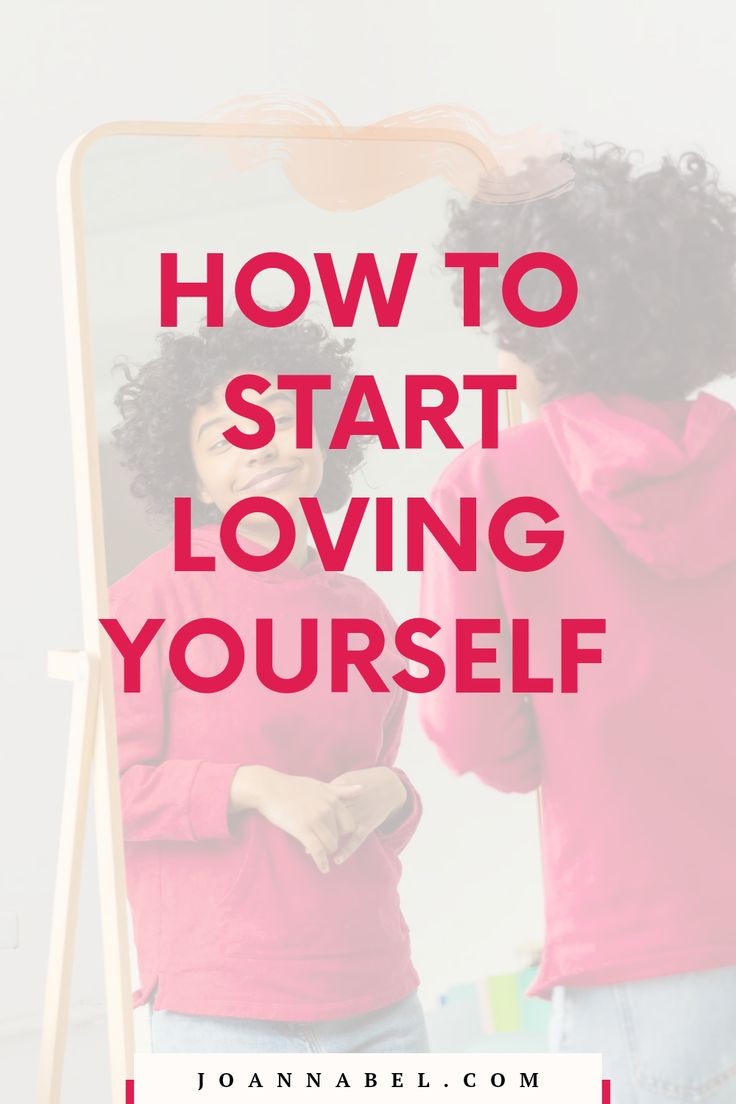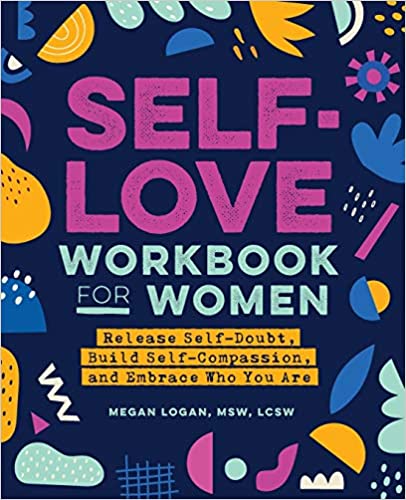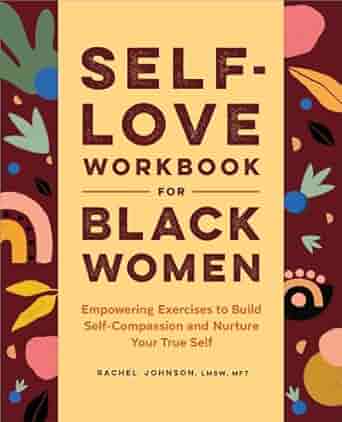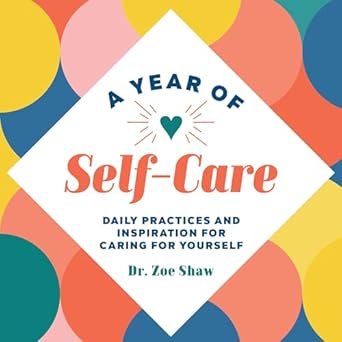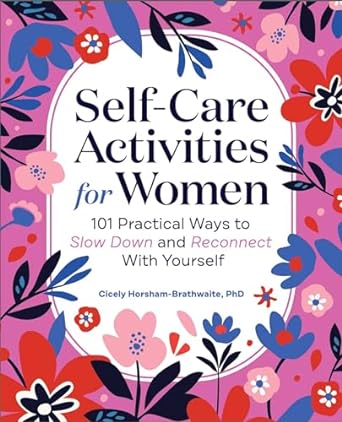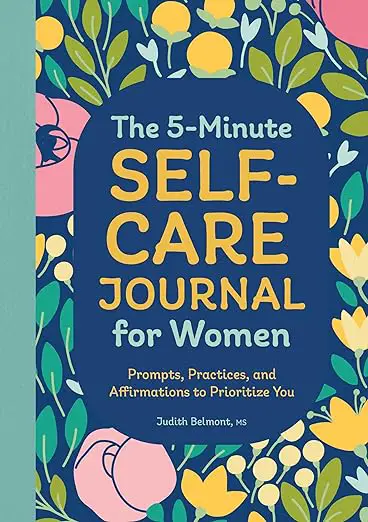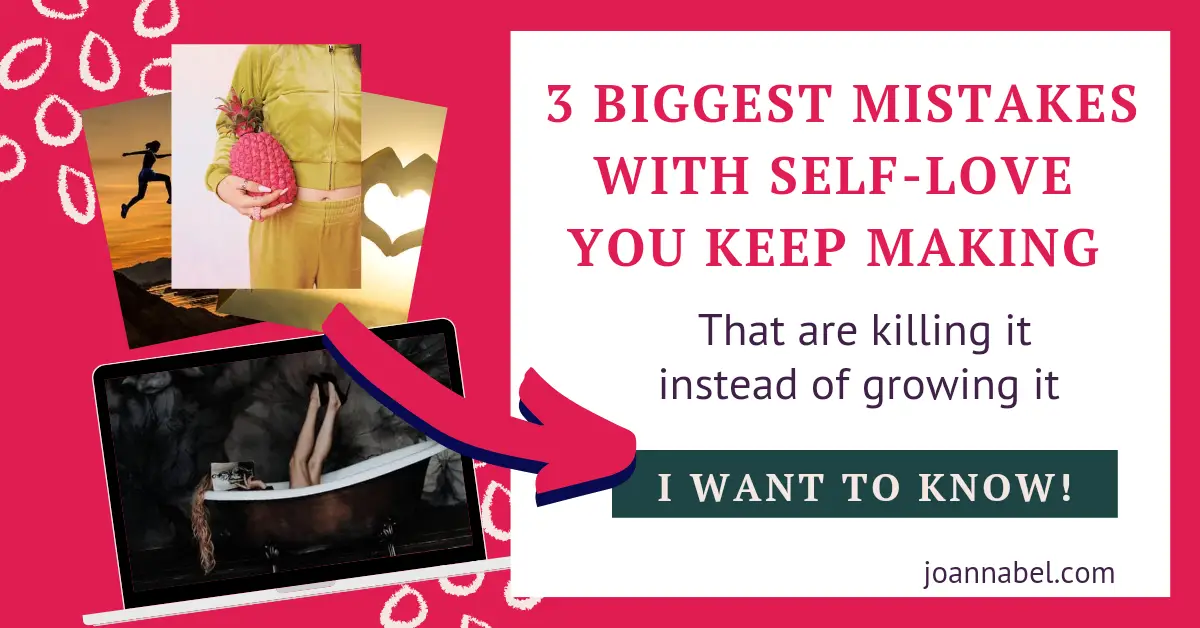If you’re curious about how to start loving yourself more, then this is the post for you, considering it’s reserved for those intrigued by the power of self-love.

How To Begin Loving Yourself?
Firstly, I’ll share the most important information about self-love. So you’re clear and at peace with your choice to increase your love for yourself.
And secondly, I’ll focus on how to start with it and how to choose the way that suits you best personally.
I’ll also share resources you can take immediately if you want to choose them for the begining of cultivating your love for yourself.
If you’re ready, then let’s see how you can start with self-love.
Note: Although I am a Clinical Social Worker, engaging with this website does not establish a professional social worker-client relationship. The information provided here is for general purposes only and should not be considered professional advice. While we strive to ensure accuracy and reliability, this content is not a substitute for professional guidance. For specific concerns, issues, or situations, it is essential to consult a qualified professional and present your situation. Read the full Disclaimer here.
This post has affiliate links which means that we make a commission from qualifying purchases at no additional cost to you. For more information read our Affiliate disclosure.
SELF-LOVE DEFINITION
Self-love is a skill, path, and a tool that helps you uncover your deep(est) desires, meet your real needs in order to take care of yourself in a balanced way and provide well-being for yourself. But without exploit of others and their well-being or endangering their human and other rights. So while ”addressing” your needs you’re being responsive to the needs of others, too.
Self-love is not uniform, because the expression of self-love can be distinctive in different cultures. This means people can take care of themselves unequally, have different lifestyle, goals, priorities, and desires and this can still be considered self-love.
No matter the way you’re exercising self-love, the principal focus is:
- that you support and encourage yourself to take care of your body and physical health, mental health, and personal development
- setting the boundaries or standards for yourself and others that interact with you, so it’s comfortable to you, but it’s responsive to the needs of others involved.
- that you stop sacrificing your well-being, mental health, and physical health so you please others.
Pleasing others often comes from having the impulse to prove to them that you’re nice, good, kind, or worthy. Or from feeling obligated to do so.
And lack of self-love can result in bad habits or a bad lifestyle, troubling personal and professional relationships, physical or mental health problems, etc.
The thing to remember is that we’re not talking about this so you focus on blaming yourself considering this is pretty useless. Our focus is for you to recognize whether or not you’re prone to this, and then make a decision to move away from this pattern for your own good. Naturally, after you’ve acknowledged that you deserve and can live better.
Read also: WHY SHOULD YOU START LOVING YOURSELF? (5 MAJOR MOTIVES)
WHY DO WE FIND IT CHALLENGING TO CULTIVATE SELF-LOVE?
Society often creates constructs where you as an individual can be placed as less valuable because of some of your choices, identities, or characteristics. It’s often enough that you’re a woman, for example, not to mention marginalized groups in one society.
And the more rigid (autocratic) the society the worse and more toxic it can get. So you’re not broken, this is simply a logical consequence. But that shouldn’t stop you from reaching a happier place.
Of course, there could be more reasons why you’re having difficulties with cultivating self-love. For example, painful experiences, abusive relationships, or lack of positive role models.

But instead of focusing on what brought us there, it’s better to orient towards getting out of feeling stuck or exhausted. If you are into exploring why self-love is so hard for you, read my post Why Is Self-love So Hard For Me? (6 Probable Reasons.
Remember, self-love is important if you strive to have a healthy connection with yourself, and healthy relationships with other people, as well. This means, that when you know what you need, then you tend to form quality and functional relationships. Because now you’re more aware you don’t need to accept those that create a toxic environment.
The reason for this is the fact that self-love helps you recognize, understand, and then meet those needs better, which means you know how to take care of yourself in a balanced way, in general. This as an outcome has more skilled and better decision-making and higher self-esteem.
If you’re curious to understand why is self-love so hard for you, I’ve compiled a few reasons why this may be the case in my blog post: Why Is Self-love So Hard For Me? (6 Probable Reasons).
In case you find it hard to love yourself and you want to dive into helpful resources to get you to begin moving into that direction, check out these few interesting ones:
Paid link: Self-Love Workbook for Women: Release Self-Doubt, Build Self-Compassion, and Embrace Who You Are (Self-Love Workbook and Journal)
Embrace who you are with this guided self-love book for women of any age and any background. You’ll embark on your journey of self-discovery by learning what self-love is, and then immersing yourself in exercises to help you build your self-esteem and improve or elevate your relationships.
This very successful self-Love workbook created by a fellow Megan Logan, LCSW is designed with a clear intention to empower women on their journey of self-discovery and self-love. So if you like my approach to self-love you’ll probably like this. Because as you’ll see that I always emphasize that to increase self-love we need some practice and consistency.
The self-love workbooks typically include exercises, prompts, and activities that encourage self-reflection, self-compassion, and self-care, in addition to practical tools and strategies for setting boundaries, managing stress and anxiety, and cultivating healthier habits.
By getting a self-love workbook, you’re benefiting from a valuable resource that can empower you to take control of your mental and emotional health, develop a more positive and compassionate relationship with yourself, and in the end, improve your overall well-being.
I’ve collected a few helpful Self-Love Workbooks in my post: The Best Self-Love Workbooks To Help You Finally Break Free From Self-judgement Through Self-Compassion And Self-Acceptance.
You may want to also check out alternatively (or combine the 2 workbooks):
Self-Love Workbook for Black Women: Empowering Exercises to Build Self-Compassion and Nurture Your True Self (Self-Love Workbook and Journal)
As an African American woman, juggling many roles can leave little time for self-care. With this in mind, here’s an empowering self-love and self-care workbook designed to help you prioritize your joy, healing, and growth, with affirmations and exercises that nurture your authentic self.
Embrace self-love, build inner peace, and cultivate confidence while exploring themes of self-compassion and community.
Paid link: A Year of Self-Care: Daily Practices and Inspiration for Caring for Yourself (A Year of Daily Reflections)
This is a 12-week anxiety and self care journal that will help you process what’s occupying your mind and gently re-frame your thoughts, so you can manage your worries before they get to spiral out of control. This could potentially help if you’re feeling anxious even to start self-exploration.
It was designed to meet you where you are and guide you to developing a practice of dedicating a few minutes a day to reflect on your thoughts, detect the sources of your anxiety, and prioritize your overall wellness and mental health. This is dedicating a few minutes to yourself you really need.
It has:
- Daily Journaling Pages
- Self-Care Ideas
- Therapy Reflections
- Emotional Support Cheat Sheet
- Fear-Setting Exercises
- Habit Trackers
- Monthly Progress
Paid link: SELF-CARE ACTIVITIES FOR WOMEN: 101 PRACTICAL WAYS TO SLOW DOWN AND RECONNECT WITH YOURSELF
Prioritizing well-being is crucial, especially for women who often/usually prioritize others.
“Self-Care Activities for Women” offers a variety of ways to relax and find joy, covering emotional, mental, physical, social, and professional care.
With 101 simple activities, from creating a joy playlist to cooking a healthy meal, this book encourages making time for ourselves and cultivating a habit of self-check-ins.
Paid link: The 5-Minute Self-Care Journal for Women: Prompts, Practices, and Affirmations to Prioritize You
This journal offers quick and easy self-care practices to meet your needs amidst a busy life.
It stands out with 150 uplifting prompts promoting growth mindset, mindfulness, and positive intentions.
Spend just 5 minutes on self-love with its effortless questions, affirmations, and actions.
Plus, its user-friendly design makes reflection recording enjoyable.
Paid link: Self-Love Journal for Teen Girls: Prompts and Practices to Inspire Confidence and Celebrate You
If you’re a teen (or get this for your teen if you’re a parent) start the new year by encouraging yourself to embrace self-love and confidence.
The Self-Love Journal for Teen Girls offers affirmations, reflective prompts, and creative activities that can help you understand your emotions and celebrate your uniqueness.
With uplifting quotes and practical exercises, it’s a powerful tool for fostering self-awareness, self-worth, and self-care.
RELATED:
HOW EXACTLY DO I MEET MY NEEDS WHILE BEING RESPONSIVE TO THE NEEDS OF OTHERS?
You may be thinking – well, this is a nice thought, but how can I do it? Or can I do it, at all? The focus here is not to confuse self-love with satisfying any need or want at any given moment, no matter what happens around you, or if someone is opposing it.
This is why sometimes self-love is perceived as selfish. It’s reduced to people taking care of themselves only. And it’s never mentioned that people skilled to take care of themselves, can serve others, as well. Moreover, being responsive and sensible to the needs of others, even being in service of others, contributes to self-love and self-growth.
The reason for this is the fact that people with good connections with themself can recognize their needs for self-actualization where the sense of purpose is an important segment. And serving others provides a unique sense of purpose. Which is beyond great, but when out of balance, can potentially become toxic.
Let me explain how and why. With this, all of us also need to learn how to find a balance so that our serving of others doesn’t turn into an asset for preserving power that isn’t ours to take.
A good example of this is when parenting becomes a lever for inducing our sense of purpose. This is especially visible in moments when it’s time to support kids in exercising their need for independence and for individuation (the process of reaching a stable, independent personality), and the parent is not ready to do this.
It’s important to be mindful of the fact that being in service of others can be seductive and lead us to lose our individuality and neglecting of different important identities, even roles.
I’m not saying this parent has an intention to disempower a child. I’m saying a parent forgets to dedicate to their self-growth, for discovering their separate purposes, productiveness, and desires.
Naturally, it may feel easier to deal with other people’s problems instead of ours. While enjoying the superiority and power of being the one who is providing support. This doesn’t seek us to show too much vulnerability, which may be frightening. And is exposing us to the inconvenience of revealing ourselves to others, who, for example, may not accept us for who we are.
Not to mention that expressing vulnerability is not welcomed in society and is wrongly represented as a clear sign of weakness.
SO WHAT IS THE SOLUTION HERE?
The solution here is to go back to nurturing self-love and focus on personal development. Where we turn to ourselves and connect with ourselves to uncover where is the best for us to express ourselves.
All of this means we shouldn’t fear putting someone else’s needs before ours when it’s appropriate. (With kids this is good parenting). Here we’re being sensible and sensitive and can recognize the moments when this is the best thing to do and we’re showing support.
HOWEVER, when this is our way of functioning, where we constantly ignore (or postpone, forget, sacrifice) our needs and are too flexible with our boundaries, it should be considered a sign of pleasing others.
And potentially a sign of a lack of self-love, which we should deal with (ASAP).
(Think about yourself from this point of view to understand your patterns. And don’t worry, so many of us have been there, too!)
To be even more clear:
- listen and respond to the needs of others,
- you can even put their needs before yours when it’s clear their needs should be prioritized at that moment,
- but don’t ignore your need/needs. Find a way to meet them in a different way or find a consensus (as opposed to a compromise – where both sides decide to give up on something.)
This is a skill, which means it takes PRACTICE. So don’t beat yourself up if this doesn’t go as easy and fast as you’d hope for. Start by:
- communicating your needs more,
- strengthening assertiveness (where you are firm with your request but kind to the person you’re communicating your needs with),
- honing in on negotiation skills, and
- cultivating sensibility+sensitiveness for the needs of others you interact with.
If you’re not sure about universal human needs, and the difference between needs and wants, read my blog post that explores this.
YOU MAY ALSO LIKE:
IS SELF-LOVE POSSIBLE WITHOUT BEING SELFISH?
As I previously mentioned, self-love is perceived as selfish due to confusing it with practices such as a relentless chase for satisfying your needs and wants, your convenience, or pleasure.
Even though there is a common belief that people with selfish personality characteristics love themselves more than those that aren’t seen as selfish, the truth is actually the opposite. Selfishness isn’t self-love.
Selfish people perceive they won’t have enough, as a result of a belief about not being worthy and capable enough to have it in the first place, or that they will not have enough, so then they continue taking/hoarding.
However, it’s not exactly a choice not to love yourself, that person has made, but it is a choice whether or not you’ll do something about where you are now.
When people lack self-love and they can’t see or believe their value, they turn to external reflection, excessive competition, and only external validation. They face challenges with obtaining balanced independence, which is why they may not be that skilled at independent decision-making. And why they’ll, for example, include others into it excessively (so they can try to please everyone at the same time).
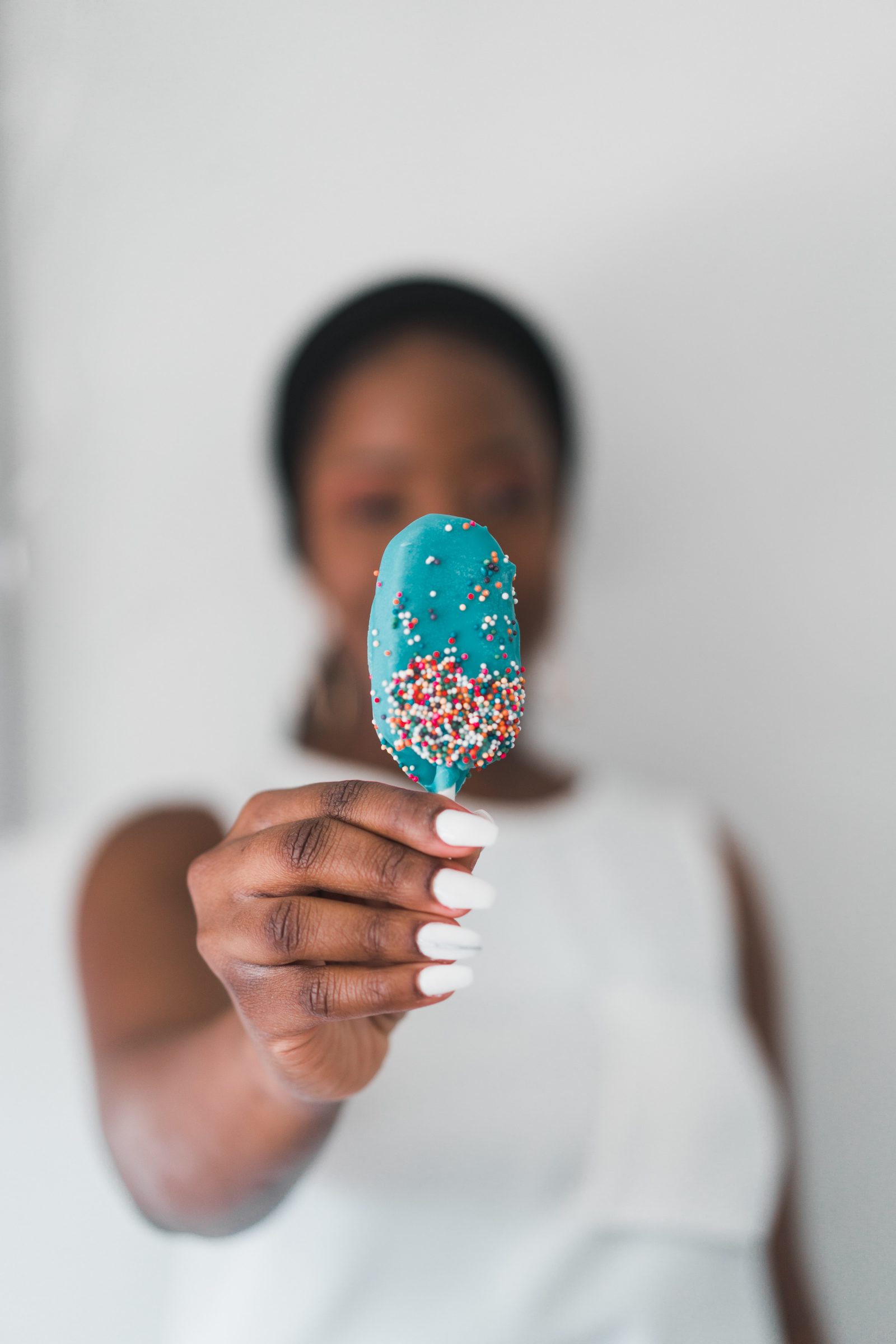
Also, they may tend to interfere where they don’t belong to get a chance to mirror themselves and don’t end up as less fortunate, skilled, or successful (they tend to overstep boundaries, and this is when you are bound to keep the boundaries more firm).
This doesn’t mean you have to be a Titan, where you are not to show any of these characteristics. It means you need a balance of these characteristics, considering all are common for each of us. What would help, is focusing on your level of maturity by focusing on your self-growth.
Self-love comes from knowing and owning your value, which means increasing self-love is not and should never be considered selfish. The key is knowing what is enough for you, so you can give up on the rest (surplus) so then you don’t have to take from others.
By taking, I don’t just mean material things. It can be domination, energy, motivation, self-esteem, willpower, desire for life, etc.
3 Biggest Mistakes With Self-acceptance
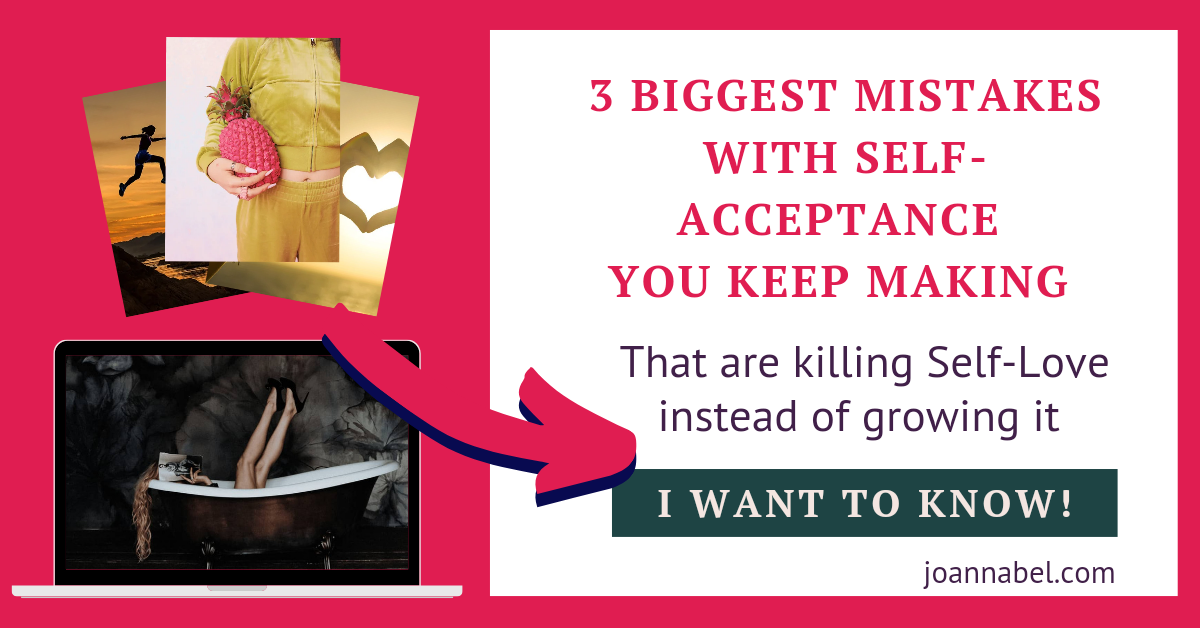
Another thing you might be worried about is to not be seen as a selfish person when you finally choose a self-love journey or regularly practicing self-love. But the truth is that those who are ‘right for you’ won’t perceive taking care of yourself as insensitivity or selfishness. Of course, always without using or harming others.
So when you announce you’ll start with increasing self-love, or when you actually start to practice self-love, there’s a chance some people will be out of your life. That’s because they probably take advantage of you lacking self-love.
This may be painful and challenging at the time, but in the long run, this is going to be beneficial for you. It’s going to clear the space for others who care you have your needs met. Look at it this way – considering they are benefiting when you have less self-love, you should even look at it like a blessing that they’re gone.
If these are people close to you that you don’t have a ‘commodity to lose’ or you don’t want to lose, you can try being more restrictive/withdrawn from sharing too much in communication. (If setting the boundaries and your assertiveness didn’t stop them.) This supposes, for example, reducing communication to only necessary and functional. To prevent them from overstepping the boundaries like they usually do.
Read my post on 100 Reasons to love yourself + 1 that will surprise you if you have a hard time with focusing on the reasons why you can love yourself right now, instead if waiting for later.
This may interest you:
WHY ARE THEY TELLING ME I’LL BECOME NARCISSISTIC IF I CHOOSE SELF-LOVE?
There is a common misconception about narcissists being people who love themselves. Because they’re seen as someone obsessing over themselves, showing self-admiration and an insatiable desire to be glorified.
Narcissism (especially toxic) can be signalizing a lack of self-love. This may be how a person has learned to deal with unmet emotional needs they faced in the past. If you choose to practice self-love this doesn’t make you narcissistic, because firstly, you don’t become narcissistic just like that, this is more complex than this.
A person didn’t choose narcissism. This is how they had to adapt. But a person can and needs to choose to do something about it when they realize it’s negatively affecting their functioning in their relationships and other areas of life.
And secondly, what you may be confused about are practices like selfishness and narcissistic behavior being mixed up with self-love in everyday life. If people wrongly consider them as a sign of self-love, they can think and pass on that self-love can harm. That’s because you or they see narcisistic people hurt or harm others which you obviously don’t approve and you don’t want to be associated with that kind of behavior.
Now, if you’re scared to enhance self-love because you fear what those people will think so your choosing against it, I suggest you reconsider that decision now. Because you’ll be sacrificing your well-being over their acceptance of your choice or accepting you.
You should not trade wellbeing for being accepted. What I’m saying is you should set boundaries for yourself and acknowledge whose opinions matter the most to you. Because I’m pretty sure you don’t really care about the opinion of people you don’t even know. Or those that are not that important to you.
Sometimes we even need to ignore the opinions of those close to us if they’re blocking our self-growth.
If you found the information on the blog helpful & inspirational and you feel like giving back, you can do it by clicking the donate button after entering amount you’re comfortable with. I’ll use it to create and deliver more useful content and resources like this. Thanks for your precious contribution!
CAN SELF-LOVE PUT ME AT RISK?
A self-love journey is never dangerous and bad by nature. If you practice real self-love you can count on numerous positive outcomes out of it. But that doesn’t mean you won’t face some more or less unpleasant situations, maybe. Usually, choosing to sacrifice convenience today, pays off in the future.
Some of these unpleasant situations might be going through change. Which is never easy. You may also face disapproval or resistance from some people. Some may even distance themselves or leave. But I encourage it not to look at it negatively.
I’m not saying you should avoid the pain that this may cause. I’m just saying not to take it as a solely bad thing, or a bad sign. A sign that you made a mistake in choosing a self-love journey.
When you are used to putting other people’s needs ahead of yours all the time or pleasing them, you may have gained some unhealthy relationships. Where the person you regularly interact with takes care mostly or only of their comfort. And the maneuver space they leave for the other person (you) to deviate from the high demands they put on them (you) is very narrow. At one point this can become an emotional exploitation of the other person.
Note: People who are accustomed to subordinating others to their convenience, may have a distorted perception they’re being flexible with you. Considering their level of tolerance for discomfort is too low. Then they may accuse you of being neglectful. Therefore, be mindful of this, to prevent the relativization of reality they may lead you in.
And since you haven’t shed light on your patterns, you have been always adapting to them. And this (potentially) exploitative person is benefitting from your adaptability. So then when you decide to take care of yourself more, this may jeopardize their comfort.
Look, it’s hard to face separation, but I encourage you to observe the bigger picture here. You may ask this person to change and adapt – set boundaries. But if that doesn’t happen and this person abandons you (or you decide to distance yourself), then you have created the space for some other person, who will show more respect and empathy for you, to show up.
Unless you make a conscious decision to NOT accept this ANY MORE, the person you’re hoping to appear and come into your life as a significant other will not show. Your decisions, intentions, and actions have to become aligned.
If you found the information on the blog helpful & inspirational and you feel like giving back, you can do it by clicking the donate button after entering amount you’re comfortable with. I’ll use it to create and deliver more useful content and resources like this. Thanks for your precious contribution!
IS SELF-LOVE THE SAME AS SELF-ACCEPTANCE?
Self-love supports self-acceptance, and self-acceptance supports self-love. Meaning they strengthen each other. To really grow your love for yourself, you need to start by learning how to accept yourself and everything about yourself.
This means the good and the bad. And to also understand that neither the good nor the bad you’ve done in one event or situation, make you ‘good’ or ‘bad’. When you’re accustomed to following too (excessively) strict moral norms, this may sound very challenging. You may be also prone to self-punishing. Well, you don’t want to continue with this I’m sure.
The alternative is giving up on observing things (and yourself) only through a black and white spectrum/categories (called splitting). Seeing yourself as worthy only when you’re the best of the best. Or see yourself as the worst if you failed at something. You should practice dropping this type of criteria for worthiness, success, or kindness in life.
When you get a grip on how to accept yourself entirely (and acknowledge YOU’RE ALLOWED to go that way), then you can start changing things you don’t want in your life. And cherish and enhance parts that you do.
I wrote 99 self-love affirmations to support your intention to shoot up your self-acceptance that you can get here.

Secondly, maybe even more important is to give up on trying to achieve acceptance everywhere you go and from everyone. TIP: Write this as a reminder if you need to, and come back at it regularly. This is negatively affecting your self-love and you’re probably not aware of just how much. Moreover, it could be ruining your life.
The reason for this is the fact that by trying to do this, you’re only depending on someone else’s approval. And aren’t including your true desires and needs. Your true calling. Most of the time we only really care about the approval of a very narrow group of important people in our lives. But we’re having trouble with noticing/realizing this.
Maybe because we’re more focused on being accepted by others than on how we see and value ourselves. WHICH IS FAR MORE IMPORTANT when you’re about to make decisions important for your life.
This doesn’t mean that we need to go ‘crazy’, and don’t care what other people think of us. For example, to forget about shame, responsibility, accountability, ever feeling guilty, etc. It simply means to find balance, as we talked about in the beginning.
Self-love and self-acceptance are important if you strive to have a healthy connection with yourself. Together with healthy relationships with other people, too. Lack of self-love and self-acceptance can result in bad habits or a bad lifestyle, troubling personal and professional relationships, physical or mental health problems, etc.
THIS MAY INTEREST YOU:
CAN I IMPROVE, CAN SELF-LOVE BE ‘LEARNED’? WHAT IF I DON’T KNOW HOW TO DO IT RIGHT?
Of course, you can improve and you can learn to love yourself. Everything we had learned can be unlearned and replaced with something else that is more functional and serves us more. So does self-love. You just need practice. With more practice, you’ll become more and more skilled over time.
What you can do to increase self-love, or simply begin with a self-love journey, is find a way for this that suits you best and gives the best results specifically for you. The next subheading will tell you more about this. But, first, let me explain why you should prioritize self-love. No matter what your age is, your life phase is, or, for instance, the level of dissatisfaction with your life.
You should prioritize it because self-love can be viewed as the best love due to the benefits that it creates. And due to its potential to positively influence all the other relationships. Just think about it like this – when you love yourself more you tend to make better decisions. Which means they’re based mostly on your true desires and needs. As opposed to only doing things you’re expected to do.
This has the potential, more than anything else, to lead to more success in your life and more satisfaction with your life.
3 Biggest Mistakes With Self-acceptance

At the same time, you make better connections aligned with your best interests. Which results in forming stronger relationships followed by mutual understanding, respect, and appreciation. This means that it can all lead to more love and more fulfillment in your life altogether. This is why self-love may bring more love into all your interpersonal relationships.
Taking a self-love journey can heal. Because the consequence of self-love is obtaining a skill, or set of skills that you use to take care of yourself the best way possible, custom specifically for you.
This will be useful too after you’ve encountered an unpleasant or difficult experience. Considering whatever happens to you, especially the negative stuff, harm or hurt, with more self-love it’s more probable that you will take good/better care of yourself.
When some of your experiences have affected your self-love, the best way to heal is rebuilding and strengthening or empower yourself. And recovering the love for yourself this way. Through self-love.
You may be interested to read also:

Reasons why you may be doing things you’re ‘supposed to do’, instead of understanding what you desire to do, might be various.
But what I see as a common cause of people worldwide not being skilled at detecting what motivates them the most in life (and really makes them tick), is the absence of flexibility in the social environment as well as participation in decision-making about things that affect their lives, when they were kids and growing up. Your power was denied.
Generally speaking, it has always been expected of kids follow instructions and the guidance of the adults around you without much questioning. And not to oppose or confront too much, or they’re risking being called out for rebellion, for instance. Considering you were a child, you could’ve been seen (and treated) as someone who lacks the capacity to make ‘rational’ decisions about important things in your life. Which was utterly untrue.
So you could’ve been put in the position mostly of a passive recipient, not an agent of change. Which, as a result, makes it totally unnatural to position yourself as the main active creator of your life (feeling like an imposter). This may have led you to live as if life is only happening to you and you feel uncomfortable doing things differently. Due to this feeling of unease, most people may withdraw and continue following a paved path.
And is very logical because, naturally, all of us count on using skills we’ve adopted. We’re not relying on those we’re not comfortable with. Considering it’s easier and faster to rely on those that give us at least some results. (No matter if they are even not so functional, or not so healthy, and not even in your best interest and put us at risk).
And this is how, from my perspective, many people end up in a profession they hate, relationships that suck, and a life that doesn’t feel like their own. Unless they at one point decide to dedicate their time and effort to engage in self-growth and personal development.
Now, as I promised, let’s move on to how you should start.
WHERE SHOULD I BEGIN IF I WANT TO GROW SELF-LOVE?
You can decide on self-help, a self-guided option (with relying on reliable sources). Or use external assistance like for example psychotherapy, but not limited to it only, of course. We’re all different, which means some of us may prefer a more independent approach, for example, while others may firmer structure and a greater directive.
Therefore, before you begin, try to determine which one is you. The first step is reflecting on:
- where you are now,
- where you want to be, and
- why is this important to you?
Usually, the why is critical, because it induces the whole movement to more self-love of yours. But it’s sometimes hidden behind the issues on which you’re focusing more (because you’re centered around removing them from your life). But it’s important to be clear on your why (to define it clearly). Especially because it will keep you strong on the hard days. It’s often hard to resist going back to previous, familiar, ‘more convenient patterns.
This way you can start thinking and deciding on what your next steps are. And what you need to do to truly start your self-love journey. If you decide to go for self-help, what you need to understand is that reading about self-love isn’t enough. You need to exercise it consistently and you need to find the best way for you specifically.
You can’t copy ready-made solutions. Because NOBODY ELSE IS YOU. Nobody else has your experiences, your goals, and plans, and you have your individual pace.
You have available programs, courses, training, coaching, psychotherapy, and treatments. Whatever you choose, go for the option that, in your opinion, has the most potential to bring the best results. Remember, in the end, you’re the expert in your own life.
It would be amazing if this option can be the fastest one. But that’s not always the case, and that’s completely alright. Keep in mind that self-love is something all of us need to continue practicing for the rest of our lives.
It’s often enough that you see even the smallest change. Because this has the force to empower you to continue with your self-discovery and self-growth. Maybe the most important thing of all is to simply begin with self-exploration.
You just need to think about what suits you best. Think about:
- the way you prefer to learn,
- the way you need to absorb information,
- how you are going to hold yourself accountable, and more.
Take some time to analyze it, don’t rush this! It doesn’t matter if those around you have benefitted from one way (like psychotherapy), while you want to try some other (for example coaching). You’ve got this!
I’ve mentioned some resources you can start with near the beginning of the article, but I can name them again here. Consider combining them as well by creating some kind of a daily and/or weekly procedure for yourself for when and how you’ll use them. See what can work BEST FOR YOU. Good luck!
Paid link: Self-Love Workbook for Women: Release Self-Doubt, Build Self-Compassion, and Embrace Who You Are (Self-Love Workbook and Journal)
Embrace who you are with this guided self-love book for women of any age and any background. You’ll embark on your journey of self-discovery by learning what self-love is, and then immersing yourself in exercises to help you build your self-esteem and improve or elevate your relationships.
This very successful self-Love workbook created by a fellow Megan Logan, LCSW is designed with a clear intention to empower women on their journey of self-discovery and self-love. So if you like my approach to self-love you’ll probably like this. Because as you’ll see that I always emphasize that to increase self-love we need some practice and consistency.
The self-love workbooks typically include exercises, prompts, and activities that encourage self-reflection, self-compassion, and self-care, in addition to practical tools and strategies for setting boundaries, managing stress and anxiety, and cultivating healthier habits.
By getting a self-love workbook, you’re benefiting from a valuable resource that can empower you to take control of your mental and emotional health, develop a more positive and compassionate relationship with yourself, and in the end, improve your overall well-being.
I’ve collected a few helpful Self-Love Workbooks in my post: The Best Self-Love Workbooks To Help You Finally Break Free From Self-judgement Through Self-Compassion And Self-Acceptance.
You may want to also check out alternatively (or combine the 2 workbooks):
Self-Love Workbook for Black Women: Empowering Exercises to Build Self-Compassion and Nurture Your True Self (Self-Love Workbook and Journal)
As an African American woman, juggling many roles can leave little time for self-care. With this in mind, here’s an empowering self-love and self-care workbook designed to help you prioritize your joy, healing, and growth, with affirmations and exercises that nurture your authentic self.
Embrace self-love, build inner peace, and cultivate confidence while exploring themes of self-compassion and community.
Paid link: A Year of Self-Care: Daily Practices and Inspiration for Caring for Yourself (A Year of Daily Reflections)
This is a 12-week anxiety and self care journal that will help you process what’s occupying your mind and gently re-frame your thoughts, so you can manage your worries before they get to spiral out of control. This could potentially help if you’re feeling anxious even to start self-exploration.
It was designed to meet you where you are and guide you to developing a practice of dedicating a few minutes a day to reflect on your thoughts, detect the sources of your anxiety, and prioritize your overall wellness and mental health. This is dedicating a few minutes to yourself you really need.
It has:
- Daily Journaling Pages
- Self-Care Ideas
- Therapy Reflections
- Emotional Support Cheat Sheet
- Fear-Setting Exercises
- Habit Trackers
- Monthly Progress
Paid link: The 5-Minute Self-Care Journal for Women: Prompts, Practices, and Affirmations to Prioritize You
This journal offers quick and easy self-care practices to meet your needs amidst a busy life.
It stands out with 150 uplifting prompts promoting growth mindset, mindfulness, and positive intentions.
Spend just 5 minutes on self-love with its effortless questions, affirmations, and actions.
Plus, its user-friendly design makes reflection recording enjoyable.
Paid link: Self-Love Journal for Teen Girls: Prompts and Practices to Inspire Confidence and Celebrate You
If you’re a teen (or get this for your teen if you’re a parent) start the new year by encouraging yourself to embrace self-love and confidence.
The Self-Love Journal for Teen Girls offers affirmations, reflective prompts, and creative activities that can help you understand your emotions and celebrate your uniqueness.
With uplifting quotes and practical exercises, it’s a powerful tool for fostering self-awareness, self-worth, and self-care.
Latest Posts:
- Gifts for Your Teenager That They’ll Actually Enjoy

- 6 Reasons Your Teenagers Seem Distant and Distracted

- Special Gifts to Let Someone Know You’re Thinking of Them (13)

- 100 Ways to Challenge Yourself (Without Stretching Yourself Too Thin)

- What To Do When Your Parent Struggles With Alcohol

- How To Navigate Moving to a New Home With Your Kids

Related:
FINAL THOUGHTS ON HOW TO START LOVING YOURSELF?
And that was the most important information on how to start loving yourself and I hope you found it helpfult! And I also hope all we explored today was enough for you to realize that there are not many things that are stopping you to pursue more self-love in your life. Except, maybe, your doubts about whether or not you’ll be able to achieve it.
Let me tell you that like any other skill you’ve managed to master before, it just takes practice, patience, and self-compassion on the days it feels like a struggle.
This means that the sooner you start the faster you’ll be able to see all the positive outcomes it brings.
Therefore, before you go read my post:

